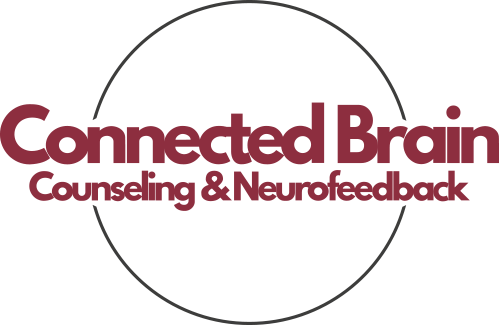When we experience trauma, it can be difficult to cope on our own. It’s natural for us to seek out others who have gone through similar experiences, creating a bond over shared trauma. This connection can create powerful relationships that help us to heal and grow. However, this kind of relationship can also lead to difficulties such as PTSD, or post-traumatic stress disorder. Fortunately, there is now a cutting-edge therapy available to help address the impacts of relationships created by bonding through shared trauma and PTSD: Connected Brain Counseling. Their innovative therapy offers an alternate to medication, providing a safe and effective way to manage trauma-related issues.
Understanding bonding through shared trauma
When we experience trauma, it can have a profound impact on our lives and our ability to cope. One of the natural ways we try to navigate through the aftermath of trauma is by seeking out others who have gone through similar experiences. We find solace in the understanding that comes from shared experiences, and it is through these connections that we form bonds with others who have experienced trauma.
Bonding through shared trauma is a powerful way to create relationships. We can relate to each other on a deep level, sharing the pain, the fear, and the challenges that come with surviving traumatic events. This connection can provide a sense of validation and support that is crucial to our healing process.
However, it is important to recognize that these relationships can also have their drawbacks. When we bond over shared trauma, we may find ourselves constantly reliving the trauma, triggering each other’s traumatic memories, and reinforcing negative emotions associated with the traumatic events. This can lead to a cycle of re-traumatization and the development of post-traumatic stress disorder (PTSD).
Understanding the dynamics of bonding through shared trauma is crucial for effective therapy and healing. By recognizing the impacts and potential risks of these relationships, we can begin to explore alternative ways to address the trauma and find healthier coping mechanisms. Connected Brain Counseling is a groundbreaking therapy that specifically targets the impacts of relationships formed through bonding over shared trauma and PTSD, offering a safe and effective approach to managing trauma-related issues. In the following sections, we will delve deeper into the impacts of these relationships and how Connected Brain Counseling can help.
The impacts of relationships formed through PTSD
When individuals form relationships based on shared trauma, there can be profound impacts on their mental and emotional well-being. While these connections can provide a sense of validation and support, they can also lead to negative consequences. One of the major impacts of relationships formed through PTSD is the constant reliving of trauma. When individuals bond over shared traumatic experiences, they may find themselves repeatedly recounting the details of the event, triggering each other’s traumatic memories. This cycle of reliving the trauma can be emotionally draining and can reinforce negative emotions associated with the traumatic event.
Additionally, relationships formed through PTSD can create a sense of dependency and reliance on each other. This dependency can hinder individual growth and healing as individuals may feel stuck in their trauma narratives. There is also the risk of re-traumatization, where one person’s trauma triggers another person’s trauma, creating a cycle of distress and suffering.
Furthermore, relationships formed through PTSD can reinforce maladaptive coping mechanisms. Instead of seeking healthy ways to manage trauma-related issues, individuals may rely on each other for support, inadvertently reinforcing negative coping strategies such as avoidance or numbing.
It is important to recognize these impacts and find healthier ways to address trauma-related issues. Connected Brain Counseling offers a solution to the negative impacts of relationships formed through PTSD. By targeting the specific dynamics of these relationships, this innovative therapy provides a safe and effective approach to managing trauma-related issues and fostering healing and growth.
How Connected Brain Counseling can help address the impacts
Connected Brain Counseling offers a unique and effective approach to address the impacts of relationships formed through bonding through shared trauma and PTSD. This innovative therapy is specifically designed to target the dynamics of these relationships and provide individuals with the tools they need to heal and grow.
One of the key ways Connected Brain Counseling can help address the impacts of these relationships is by breaking the cycle of reliving trauma. Through specialized techniques, therapists are able to help individuals process and integrate their traumatic memories in a safe and controlled environment. By doing so, individuals can begin to detach themselves from the constant replay of the traumatic event, allowing them to move forward and break free from the grips of PTSD.
Furthermore, Connected Brain Counseling helps individuals develop healthy coping mechanisms to replace maladaptive ones. Therapists work with clients to identify triggers and provide them with tools and strategies to manage these triggers in a healthier way. This helps individuals gain a sense of empowerment and control over their trauma-related issues, allowing them to navigate through life with greater ease and resilience.
Connected Brain Counseling also focuses on promoting individual growth and healing. Therapists help individuals build a strong foundation of self-care and self-compassion, empowering them to establish healthy boundaries, develop positive relationships, and pursue their personal goals. This not only supports the individual’s healing process but also fosters their overall well-being and happiness.
In summary, Connected Brain Counseling offers cutting-edge therapy that offers an effective alternative to medication for addressing the impacts of relationships formed through bonding over shared trauma and PTSD. By targeting the dynamics of these relationships and providing individuals with the tools they need to heal and grow, this innovative therapy offers hope and a path towards lasting recovery.
Treating Trauma with Innovative Therapy
Trauma can have a profound impact on our lives, leaving us feeling overwhelmed and unsure of how to cope. Traditional treatments for trauma often rely on medication, but there is now an innovative therapy that offers an alternative approach: Connected Brain Counseling.
One of the key components of Connected Brain Counseling’s approach is its focus on breaking the cycle of reliving trauma. Through specialized techniques, therapists help individuals process and integrate their traumatic memories in a safe and controlled environment. By doing so, individuals are able to detach themselves from the constant replay of the traumatic event, allowing them to move forward and break free from the grips of PTSD.
In addition to breaking the cycle of reliving trauma, Connected Brain Counseling helps individuals develop healthier coping mechanisms. Therapists work with clients to identify triggers and provide them with tools and strategies to manage these triggers in a healthier way. This empowers individuals to gain a sense of control over their trauma-related issues and navigate through life with greater ease and resilience.
Furthermore, Connected Brain Counseling focuses on promoting individual growth and healing. Therapists help individuals build a strong foundation of self-care and self-compassion, enabling them to establish healthy boundaries, develop positive relationships, and pursue personal goals. This not only supports the individual’s healing process but also fosters overall well-being and happiness.
Rewiring the Brain for Healing and Growth
In order to effectively address the impacts of relationships formed during bonding through shared trauma and PTSD, it is necessary to rewire the brain for healing and growth. Connected Brain Counseling offers an innovative approach to achieve this rewiring, providing individuals with the tools they need to overcome the negative effects of trauma and develop healthier coping mechanisms.
Connected Brain Counseling focuses on utilizing specialized techniques to help individuals process and integrate their traumatic memories. Through targeted therapy sessions, individuals can gradually detach themselves from the constant replay of the traumatic event, allowing them to move forward and break free from the grips of PTSD. By rewiring the brain’s response to traumatic memories, individuals can find relief from the distressing and intrusive thoughts associated with their trauma.
Furthermore, Connected Brain Counseling empowers individuals to develop healthier coping mechanisms. Therapists work closely with clients to identify triggers and provide them with tools and strategies to manage these triggers in a healthier way. By rewiring the brain to respond to triggers with resilience and adaptive coping strategies, individuals can navigate through life with greater ease and emotional stability.
Through rewiring the brain for healing and growth, Connected Brain Counseling offers a transformative and empowering path towards lasting recovery from the impacts of relationships formed through bonding through shared trauma and PTSD. This cutting-edge therapy provides individuals with the opportunity to reclaim their lives and thrive beyond the limitations of their past trauma.
Schedule A Consultation With Connected Brain Counseling Today by Clicking Here





